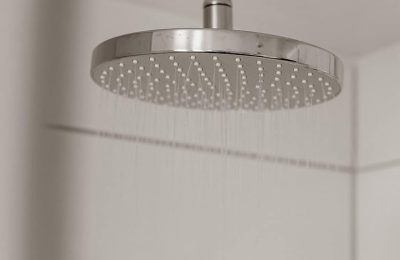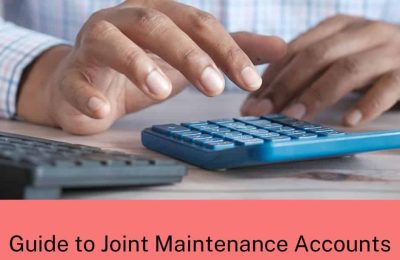There is no legal obligation to pay for a survey on a property you are purchasing, but that doesn’t mean you shouldn’t consider commissioning one. It may seem an unnecessary expense on top of an estate agent’s commission, legal fees and stamp duty, yet the cost of skipping this step – and potentially overlooking serious issues – can be much higher.
Is a mortgage valuation survey enough?
While lenders usually undertake a valuation survey before offering a mortgage, this is purely for their own benefit. A valuation survey is simply to check if the property is worth what you plan to pay for it so the lender can be sure it will act as suitable security for the loan. A pre-purchase survey is different in that it helps a buyer to get a clear picture of exactly what kind of property they are about to buy.
What other kinds of home surveys are there?
An independent home survey offers an assessment of the general condition of a property. All main elements, internal and external, are covered as well as any services or grounds. The report will flag up any defects in the building as well as any essential repairs that are needed and any future maintenance issues. After all, no one wants to buy a property and later discover it’s suffering from subsidence or damp problems. The report will also detail any potential legal issues that you may want your solicitor to investigate further.
In Scotland, anyone selling a property must commission a Home Report – a valuation and survey of the property paid for by the owner of the property being sold. In a Home Report you will find a Single Survey Report and Valuation, an Energy Performance Certificate and a Seller’s Questionnaire.
Home Reports will sometimes highlight issues with the property. Unless the seller has also obtained further reports on these issues, it is usually recommended that any offer made is subject to the results of additional survey reports.
Why do you need an independent survey?
Being made aware of any potential pitfalls in advance can help buyers make an informed decision about whether the property is financially viable. Rather than succumbing to the ostrich technique and ignoring potentially costly repairs before purchasing your property, having a home survey is a sensible choice. This is especially relevant for those intending to buy a property at auction. These homes are usually in a poorer state of repair than those on sale in the traditional way, so are more likely to have issues that will need addressing. What’s more, if you buy a property at auction you are committed to the purchase as soon as the hammer falls, so you will want to be as sure as you can that you are paying the right price.
For those purchasing a property via more conventional methods, a survey can identify serious issues that may put in question the property’s agreed sale price. As one residential surveyor points out, “a report highlights a costly repair that would be the basis for a renegotiation and a good estate agent will have made the seller aware of that possibility.”
Once contracts have been exchanged, any issues with the property become the responsibility of the new owner so it makes sense to tackle them before this point.
What are the different RICS surveys?
There are several levels of property investigations to choose from, and the most appropriate survey to book depends on the age and general condition of the property.
The Royal Institute of Chartered Surveyors (RICS) recommends:
- a Level 1 Condition Report for conventional and newer properties. This is the most basic survey and rates each area of the property with a traffic light system, with green meaning everything is fine, orange to indicate cause for concern and red when serious repairs are needed;
- a Level 2 Home Buyers Report is the most commonly commissioned report and is suitable for properties in reasonable condition and built after the war. The report will highlight any obvious major issues and includes a valuation and insurance reinstatement value;
- a Level 3 Building Survey is the most expensive type but can be valuable for large, unusual or very old properties, or for buyers planning to do major works to a building.
What problems can a property survey uncover?
A buy-to-let property is an investment so it’s especially important to get it surveyed to ensure it will yield the return that you are expecting. It’s clearly useful to be aware of issues such as damp or a roof that will soon need replacing in calculating how much you are willing to offer and how much you may need to spend on a property.
But a home survey can also help in determining any potential pitfalls in areas such as boundary lines – a key area if you intend to extend or alter the house; rights of way – such as access rights for neighbours – and elevation and insurance considerations. Landlords of BTL homes need specific insurance policies to cover their investment and secure the mortgage, and a survey can be useful in anticipating these expenses.
The best time to commission a survey is usually once you have had an offer accepted, unless you are buying at auction when it is sensible to do a thorough investigation into the property’s condition before placing a bid. Getting a property surveyed at this point means it is unlikely to hold the sale up further down the line and gives time for any negotiations that may be necessary as a result.
There are a few common concerns often found during a property survey. These include damp, roof problems, lack of test certification, no smoke or carbon monoxide detectors and failure to win planning approval for extensions and other alterations. Vendors should be able to provide documents such as boiler test certificates and approved documents for any building work that has been carried out.
While planning approval can sometimes be gained retrospectively, smoke alarms can be fitted and boilers serviced, issues such as damp or a leaky roof are often more complex. A survey should reveal the cause of any problems, so you know what action needs to be taken.
The next step is to discuss the findings with the seller and work out how to resolve any issues. Options include asking the vendor if they are willing to fix the problems before the sale goes through; using the survey to renegotiate the sale price, reducing the figure in line with the cost of the work, or pulling out of the sale.
In most cases, issues can be resolved by an adjustment to the sale price. Research carried out by Which? showed that two thirds of homebuyers who had a property survey were successfully able to either negotiate a lower sale price or get the seller to fix the issues before completion.












